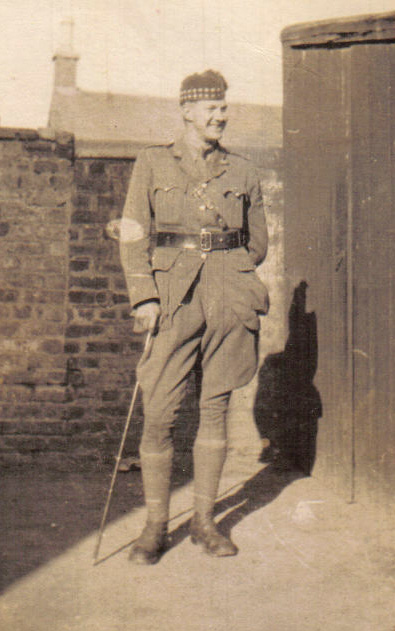2nd Lt
George Bowie
Information about birth
|
Date of birth: 18/10/1890 |
|
Place of birth: Dreghorn, Ayrshire, England, United Kingdom |
General information
|
Profession: Colliery Clerk |
Army information
|
Country: England, United Kingdom |
|
Force: British Expeditionary Force |
|
Rank: Second Lieutenant |
|
Service number: 2901 |
|
Enlistment place: Musselburgh, East Lothian, England, United Kingdom |
|
Units: — Royal Scots (Lothian Regiment), 11th Bn. (Last known unit) |
Information about death
|
Date of death: 12/10/1917 |
|
Place of death: Wallemolen, Passendale, Belgium |
|
Cause of death: Killed in action (K.I.A.) |
|
Age: 26 |
Memorial
|
Tyne Cot Memorial Panel: 11 |
Distinctions and medals 3
|
1914-15 Star Medal |
|
British War Medal Medal |
|
Victory Medal Medal |
Points of interest 3
| #1 | Place of birth | ||
| #2 | Enlistment place | ||
| #3 | Place of death (approximate) |
My story
George Bowie was a Second Lieutenant of the 11th Battalion Royal Scots, 27th Brigade, 9th Division. On 12 October 1917, the 11th Bn Royal Scots fought in the First Battle of Passchendaele, near the Northern end of the Passchendaele Ridge. The first stage of the attack was to be carried out by the 26th Brigade (9th Division), which was to advance beyond Source Farm, where they were to establish a line. Once they had established a line the 27th Brigade (with the 11th Bn. on the left and 12th Bn. Royal Scots on the right) was to carry on the line to Vat Cottages. At 05.25 a.m., zero hour, the 26th Brigade attacked with the 11th Battalion Royal Scots following closely. The Battalion advanced on the left flank of the divisional front, but practically no progress was made. Heavy rain in combination with the destruction of the irrigation channels, due to the constant shelling, had turned the fields into a nearly impassable swamp. Some men were bogged into the mud to their waist, having to be pulled out by their comrades. Only a few strips of ground were passible. These narrow strips of dry ground soon got crowded with men and were unceasingly fired upon by the German soldiers of the 16. Infanterie-Division. Hence the men had to face heavy resistance of German machine gun and rifle fire on top of the difficult terrain. Despite the heavy losses, the Battalion managed to capture some German “pillboxes", but they weren’t able to reach their main objective. At the end of the day, 160 men of the 11th Royal Scots were wounded, 21 men were killed in action and 30 men went missing. Second Lieutenant George Bowie was one of the 21 men who gave his life during the attack. He supposedly fell in the fields Northwest of the hamlet of Wallemolen.
Sources 2
|
Ewing John, The Royal Scots: 1914-1919, (London, Oliver and Boyd, Tweeddale Court, 33 Paternoster Row, E.C.,1925), pp 482-5). Sources used |
|
McCarthy C, The third Ypres Passchendaele: the day -by -day account, (Londen, Unicorn Publishing Group, 2018), p. 116. Sources used |
More information 3
|
Commonwealth War Graves Commission Database https://www.cwgc.org/find-records/find-war-dead/casualty-details/842525 |
|
Namenlijst (In Flanders Fields Museum) https://namenlijst.org/publicsearch/#/person/_id=00fdeffe-5928-4315-8080-6005f23d1f95 |
|
Lives of the First World War (Imperial War Museum) https://livesofthefirstworldwar.iwm.org.uk/lifestory/438756 |
